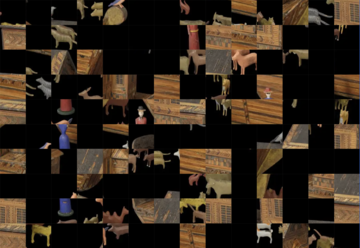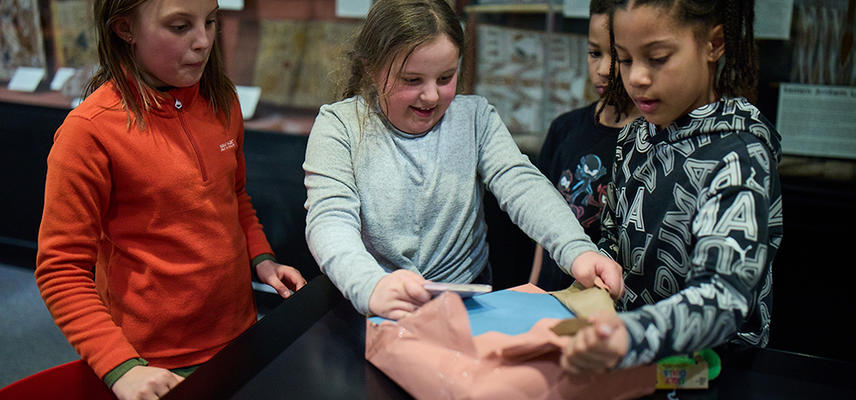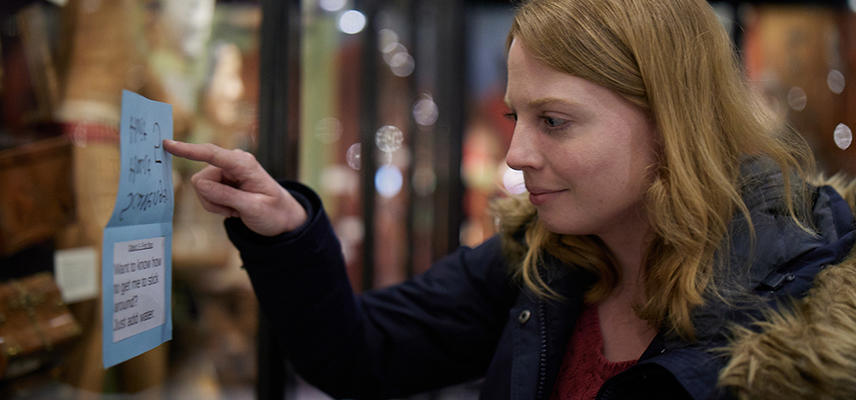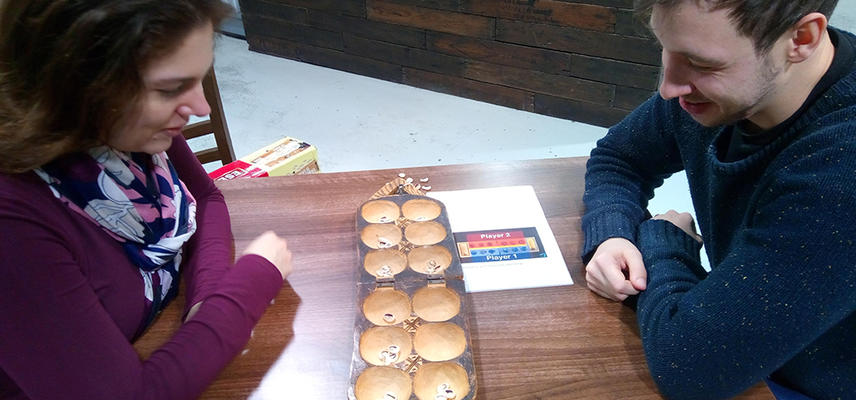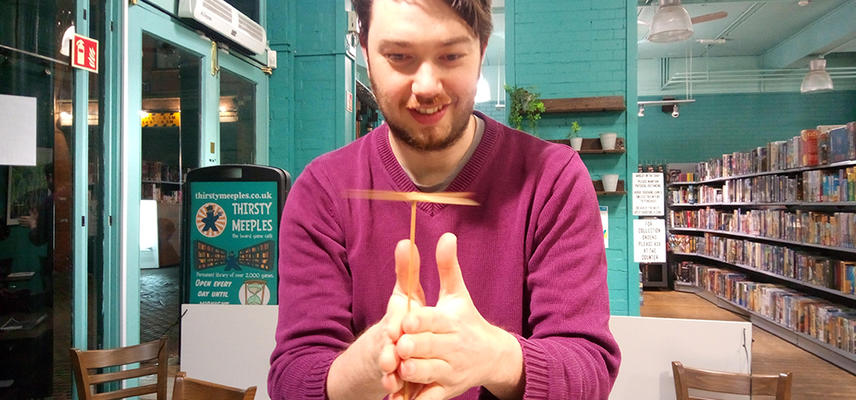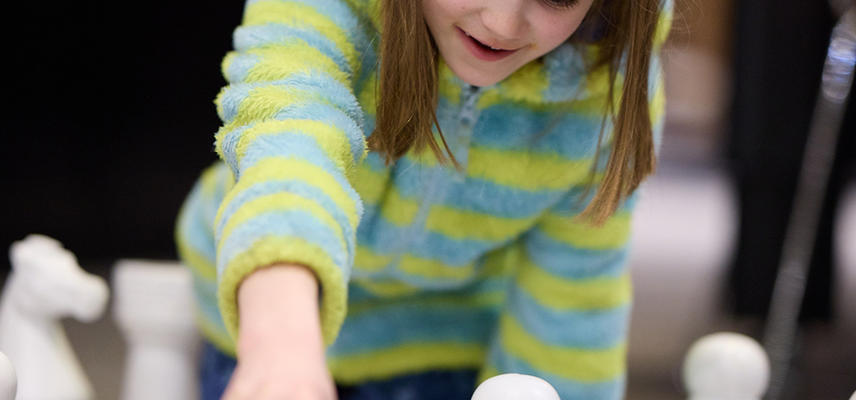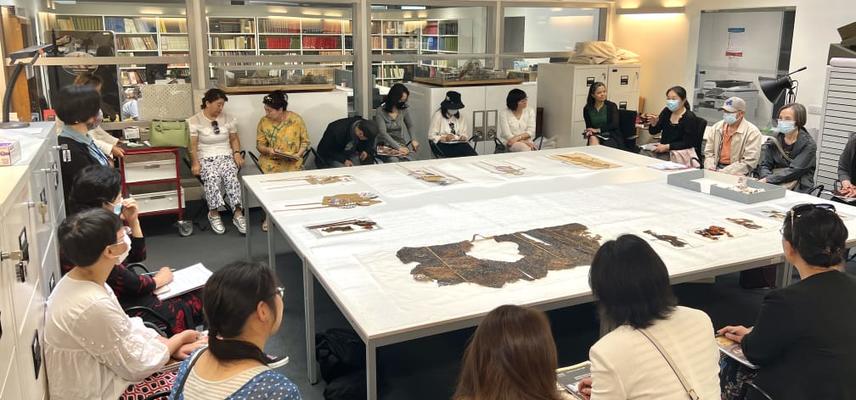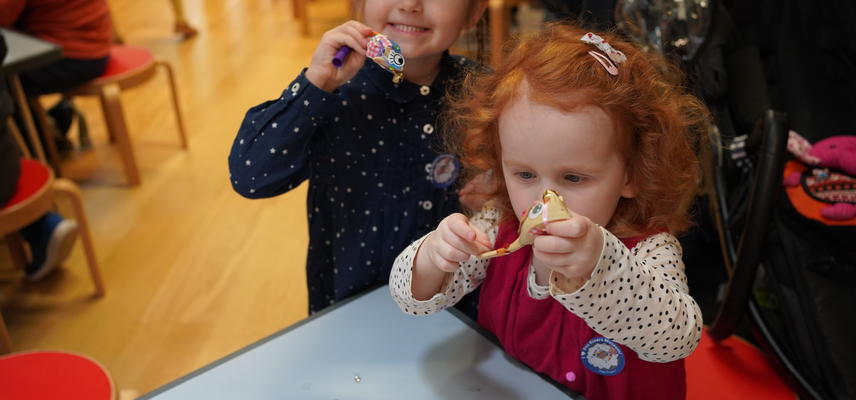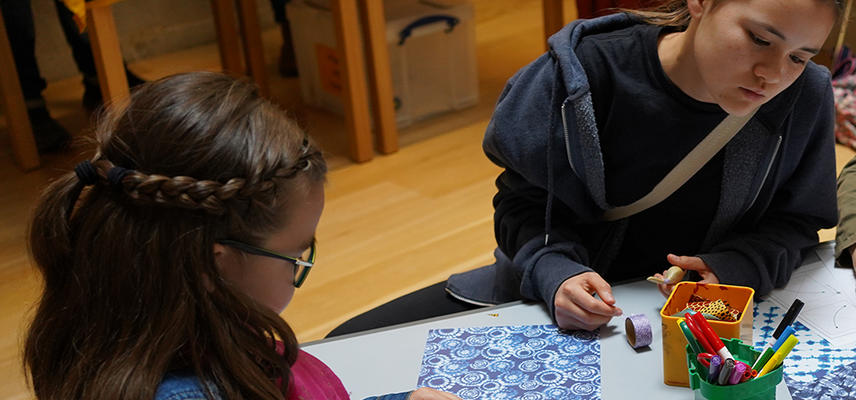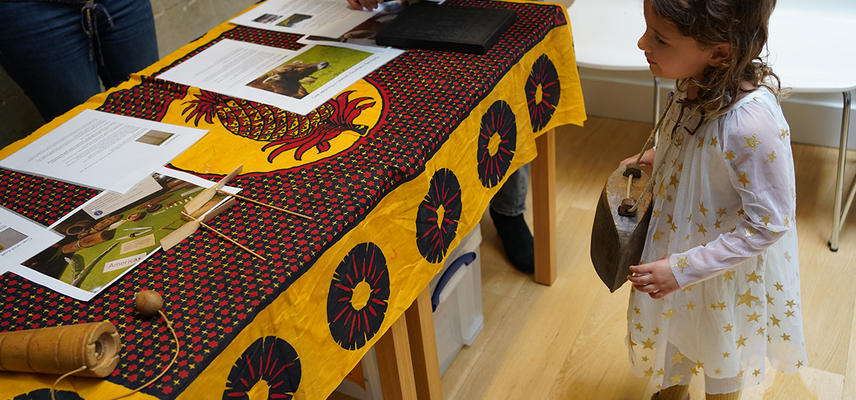Play
What was the Play! Project?
Play! was a research project and public engagement programme which aims to inject fun into the museum and local community by exploring the games, toys and musical instruments in the collection. Over the course of the project, the Play! Team delved into the museum’s collection conducting in-depth collaborative research with originating community members resulting in enhanced object documentation. Working cross-departmentally, this object research was carried out in tandem with a playful public engagement programme that enables museum visitors and local communities to get hands on with history and play both inside and outside the museum space.
Through the "Play!" theme we are exploring and testing how the museum can be decolonised through family and community activities that centre around playfulness and fun. Through our co-productive, equitable work with international researchers, Community Connectors and local community organisations, the Play! project platformed stories of play from across the world. The exchange of these stories deepened the knowledge held by the museum databases, ensuring the collections share a wider set of perspectives.
The collections and public engagement team collaborated to bring this object research to life in the form of social media campaigns, trails and activities to enable museum visitors and the local gaming community to get hands on with history and encourage play both inside and outside the museum space.
Examples of Play! activities
The Play! Team organised a range of activities from the “squeaktacular” half terms, a collaboration event at local board game cafe, and a late night play event with giant games, a scavenger hunt, and pass the parcel!
Watch the video below showing an egg-cellent crafting activity in collaboration with members from the Oxford Polish Association inspired by some of the decorated eggs on display in a case on the first floor. Scroll through our image gallery below to view a selection of Play! event photos and look out for some of the many mice decorated by visitors, in an activity inspired by the Museum's longstanding playful mouse-spotting trail.
https://www.youtube.com/embed/RRuia3BLMmY
You can play online jigsaws featuring objects from the Museum.
Playing pass the parcel at the Museum
A visitor trying to solve scavenger hunt clues at the Play! evening in March 2022
Learning how to play mancala at Thirsty Meeples board game cafe collaboration event.
Playing with a taketombo toy from Japan at the Thirsty Meeples board game cafe collaboration event.
A visitor playing giant chess at the late night event in March 2022
Participatory research session on Chinese shadow puppets with Oxford's Chinese community.
Visitors with their decorated mice during the squeaktacular half term activities
Visitors decorating wooden mice at a squeaktacular event
Young visitor engaging with object handling activity at a Play! event in the Museum
Play! Project Object Highlights
Here are some of the objects being photographed and researched for the Play! Project.
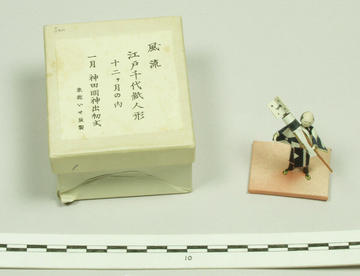
PRM 1996.17.144.1. This object's information has been translated from Japanese to English by local volunteer Fusa Mclynn.
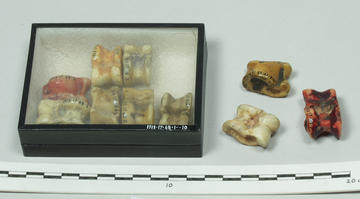
Knuckle bones astragalus from Algeria, used historically as gaming pieces object. PRM1913.17.68. This object has been researched by the Collections & Public Engagement Officer for a future book on the history of 'play' written by the project sponsor.
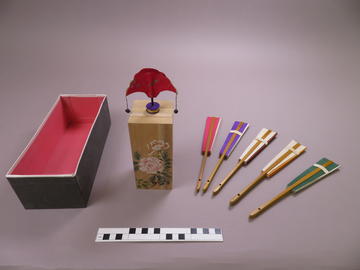
Tosenkoyo fan throwing game from Japan. PRM.1919.56.3. Re-photographed by the Collections & Public Engagement Officer to demonstrate how the game is played. Volunteer Fusa Mclynn has conducted research on the game Tosenkyo enhancing museum records.
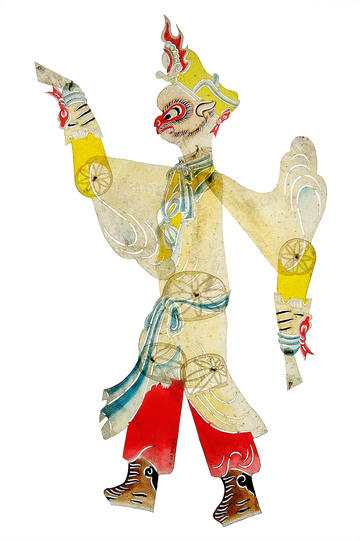
Shadow puppet from China. 2008.83.18. This object is one of many shadow puppets that is being investigated through participatory research with members of the local Chinese community.
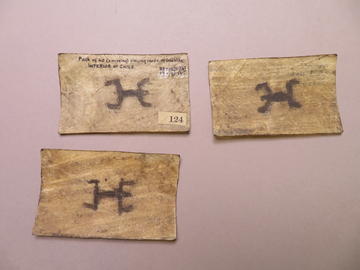
Cowhide playing cards from Chile. PRM1884.100.19. Francisca Santana Sagredo, Archaeological Researcher at The Pontifical Catholic University of Chile has been interviewed about this object as part of collections research and decolonising the collection.
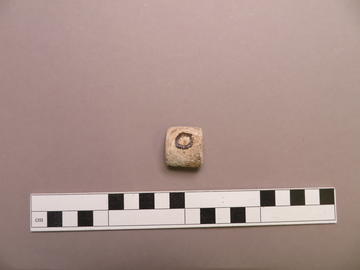
Fuba game stone from Zimbabwe. PRM1907.38.82. Robert.T Nyamushosho, Archaeologist at University of Cape Town, has been interviewed about this object as part of collections research and decolonising the collection.
